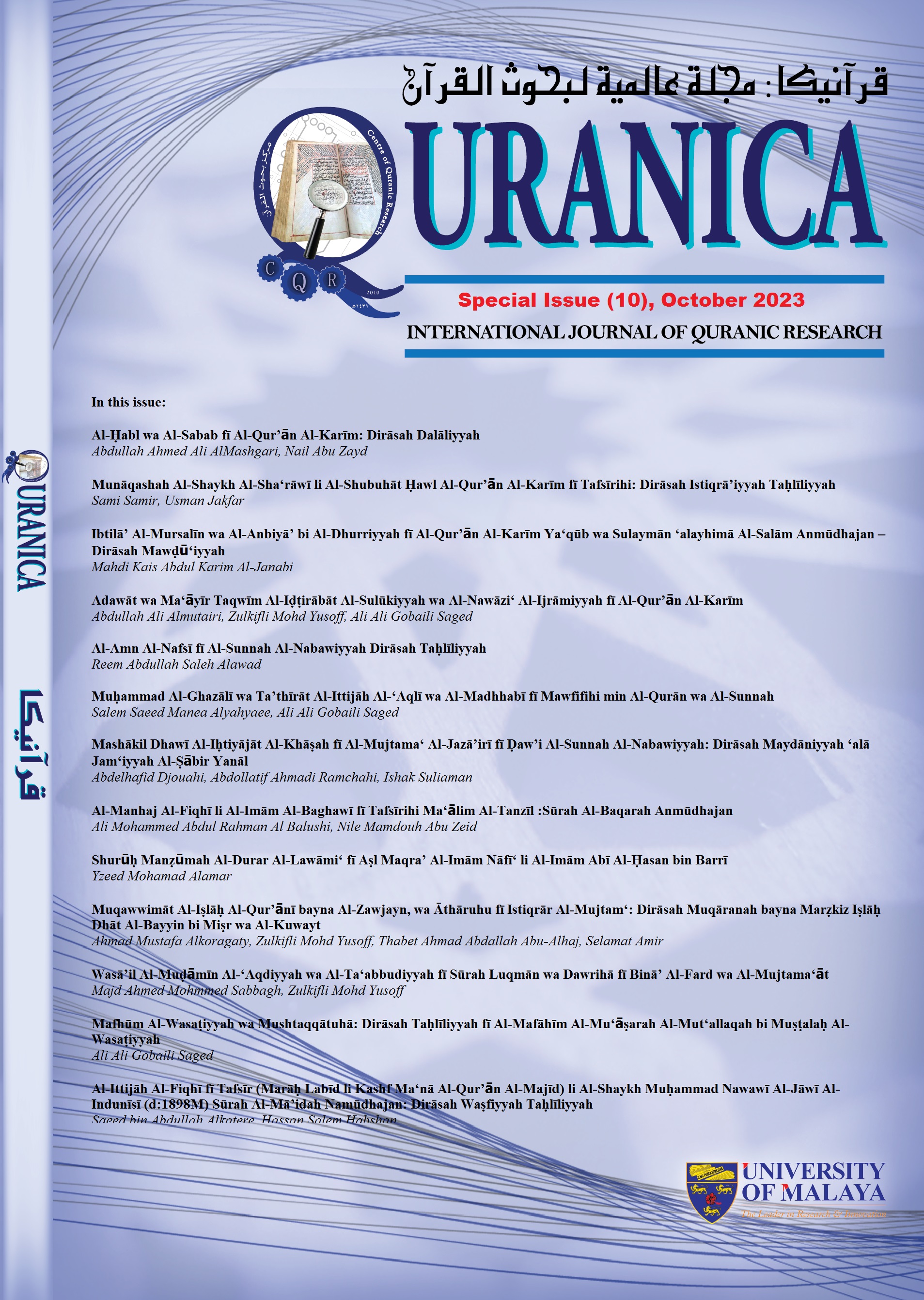Al-Manhaj Al-Fiqhī li Al-Imām Al-Baghawī fī Tafsīrihi Ma‘ālim Al-Tanzīl: Sūrah Al-Baqarah Anmūdhajan
Main Article Content
Abstract
The research dealt with the jurisprudential approach of Imam Al-Baghawī in his interpretation of the milestines of revelation, the study consunterated on Sūrah Al-Baqarah, as it is the longest Sūrah of the Qur’an, and it containes many verses of the judgements. The study was based on the analytical approach to the verses of judgements in Sūrah Al-Baqarah; in order to find out how Al-Baghawī has dealt with the jurisprudential matters included in this blessed surah. In order to derive his jurisprudential approach in his interpretation, the researcher concluded a number of results, including: Imam Al-Baghawī’s involvement in the science of jurisprudence, as well as his awaring of the sayings of the jurists from the Companions and the followers, and the opinions of the four doctrines and others. Al-Baghawī also relied when referring to jurisprudential matters on the legal evidence from the Qur’an, the Sunnah, consensus and the Arabic language, in different proportions, highlighting the Prophet’s Sunnah more than other evidence. It's also notised that the reference that Al-Baghawī mentions the hadiths that are attributed to the Messenger - may Allah prayers and peace be upon him -, but the sayings of the Companions and the followers were not attributed. He was limited in mentioning the famous jurisprudential sayings and turned away from the abnormal sayings, and his style was easy, understandable and accessible to everyone. He did not refer to the jurisprudential references that he drew his own jurisprudential wealth from.
Downloads
Article Details
Disclaimer
QURANICA makes every effort to ensure the accuracy of all its contents. However, opinions, discussions, views and recommendations are expressed in this journal do not necessarily reflect the official policy of QURANICA or views of its editors or publishers. Therefore, QURANICA and its publishers will not be liable for any controversy may be arisen. The journal reserves the right, at its sole discretion, to change its terms and conditions of publications.
Copyright
It is a condition of publication that manuscript submitted to the journal have not been published, accepted for publication, nor simultaneously submitted for publication elsewhere. By submitting a manuscript, the author(s) agrees that copyright for the article is transferred to the publisher, if and when the manuscript is accepted for publication.
